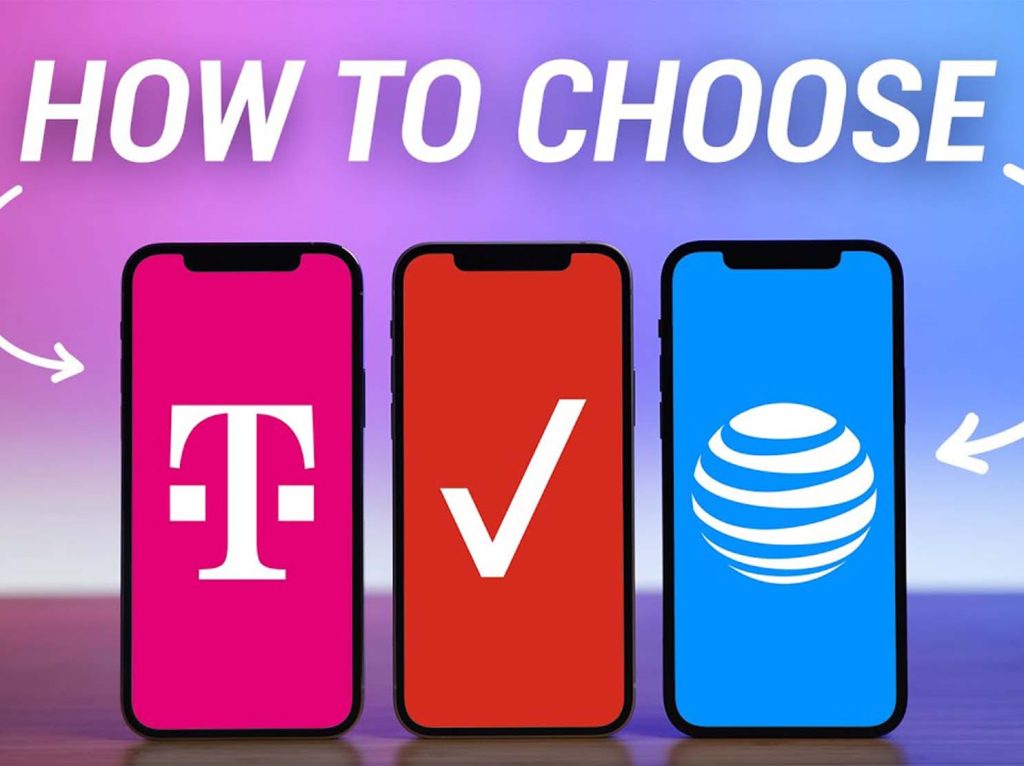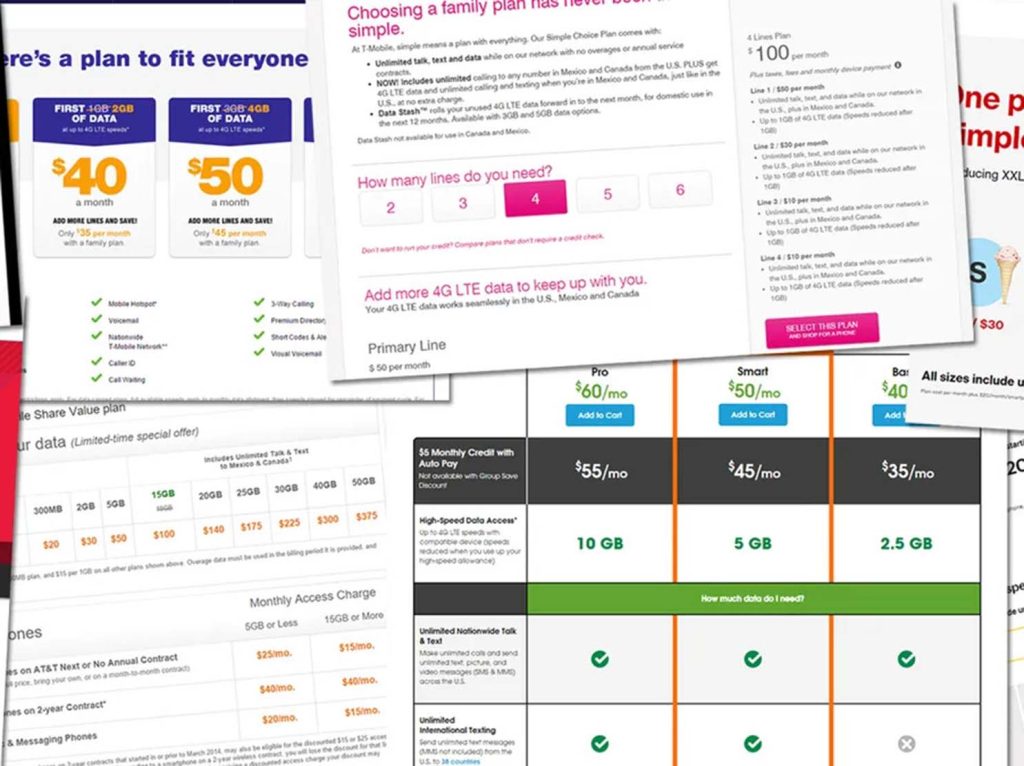Choosing the right mobile plan can significantly impact your overall experience with your mobile device. With numerous options available, ranging from basic pay-as-you-go plans to unlimited data bundles, selecting the most suitable plan for your usage needs requires careful consideration.
Understanding Your Mobile Usage
Before diving into the specifics of mobile plans, it’s essential to understand your current usage patterns. Evaluating your usage will help you determine what features you need and how to avoid overpaying for services you don’t use. Here’s how to assess your usage:

1. Analyze Your Current Mobile Usage
Start by reviewing your recent mobile bills or usage reports. Most carriers provide detailed statements that show how much data, talk time, and text messages you use each month. Many mobile operating systems also have built-in usage trackers that can help you monitor your consumption.
2. Consider Your Typical Activities
Reflect on how you typically use your phone. Do you frequently stream videos, use social media, or engage in video calls? Understanding these habits can help you gauge how much data and talk time you need.
3. Evaluate Your Communication Needs
Think about how often you make calls, send texts, and use mobile data. If you frequently make international calls or text messages, look for plans that offer international features or packages.
Types of Mobile Plans
Mobile plans generally fall into a few main categories. Each type caters to different needs and preferences. Here’s an overview of the most common mobile plan types:

1. Pay-As-You-Go (Prepaid) Plans
Pay-As-You-Go plans allow you to pay for mobile services in advance. You load a certain amount of credit onto your account, which is then used to cover your calls, texts, and data usage. When your credit runs out, you can recharge it.
Pros:
- No long-term commitment or contracts.
- Full control over your spending.
- Ideal for occasional users or those with unpredictable usage.
Cons:
- Higher per-unit cost for calls, texts, and data.
- Limited features compared to postpaid plans.
Best For: Occasional users or those who want to avoid long-term contracts.
2. Postpaid Plans
Postpaid plans involve a monthly billing cycle where you pay for your usage at the end of each month. These plans often include a fixed amount of calls, texts, and data, with additional usage charged at standard rates.
Pros:
- Often comes with bundled minutes, texts, and data.
- Potentially lower per-unit cost for calls, texts, and data.
- May include additional perks such as international roaming or device subsidies.
Cons:
- Requires a contract or commitment.
- Risk of higher bills if you exceed your plan’s allowances.
Best For: Regular users who prefer predictable monthly bills and additional features.
3. Unlimited Plans
Unlimited plans offer unlimited calls, texts, and data usage within the country. Some also include international features or premium services.
Pros:
- No worry about overage charges.
- Ideal for heavy users who need extensive data, calls, and texts.
- Often includes international roaming and other benefits.
Cons:
- Higher monthly cost.
- Potential for throttling or reduced speeds after reaching a certain data threshold.
Best For: Heavy users who require extensive data and want to avoid overage fees.
4. Family Plans
Family plans allow multiple users to share a single plan. They often offer a discounted rate per line and include shared data, calls, and texts.
Pros:
- Lower per-line cost compared to individual plans.
- Centralized billing and management.
- Often includes features like family tracking or parental controls.
Cons:
- Shared data may lead to overage charges if not managed properly.
- Requires coordination among family members regarding usage.
Best For: Families or groups looking to save on overall mobile costs.
Key Factors to Consider When Choosing a Mobile Plan
Selecting the right mobile plan involves evaluating several factors to ensure it meets your needs effectively. Here are the key aspects to consider:

1. Data Usage
Data usage is often the most critical factor in choosing a mobile plan. Consider how much data you typically use each month. If you frequently stream videos, browse the internet, or use apps, opt for a plan with sufficient data allowances.
- Light Users: 1-3 GB of data per month may be sufficient.
- Moderate Users: 4-10 GB of data should cover most needs.
- Heavy Users: 11 GB or more may be necessary, or consider an unlimited data plan.
2. Call and Text Needs
Evaluate how much you use your phone for calls and texts. If you make frequent international calls or send a high volume of texts, look for plans that offer unlimited or large allowances for these features.
- Occasional Users: Pay-as-you-go or low-minute plans may be suitable.
- Regular Users: Plans with a substantial number of minutes and texts included.
- Heavy Users: Unlimited plans or ones with generous allowances.
3. Budget
Determine how much you’re willing to spend each month on your mobile plan. Compare the cost of different plans and consider any additional fees or charges that may apply. Remember to account for the total cost of the plan over the contract period.
- Budget-Conscious: Pay-as-you-go or low-cost postpaid plans.
- Moderate Budget: Mid-range postpaid plans or family plans.
- Higher Budget: Unlimited or premium plans with additional features.
4. Contract Terms
Review the contract terms associated with each plan. Some plans require a long-term commitment, while others offer flexibility with no contract.
- No Contract: Pay-as-you-go and some postpaid plans.
- Contract Required: Many postpaid plans and family plans.
5. International Features
If you travel frequently or need to make international calls, choose a plan that includes international features or offers competitive rates for international usage.
- Travelers: Look for plans with international roaming and competitive rates.
- International Callers: Plans with discounted international call rates or bundled minutes.
6. Additional Perks
Consider any additional benefits or perks offered by the plan. These may include device subsidies, free streaming services, or loyalty rewards.
- Device Subsidies: Some postpaid plans offer discounts or payment plans for new devices.
- Streaming Services: Some plans include subscriptions to services like Netflix or Spotify.
Comparing Mobile Plans
When comparing mobile plans, use the following criteria to make an informed decision:
1. Coverage and Network Quality
Ensure the plan you choose provides good network coverage in your area. Check the carrier’s coverage map and read reviews to gauge network quality.
2. Customer Service
Consider the carrier’s customer service reputation. Look for carriers with good customer support and reliable service.
3. Flexibility and Upgradability
Check if the plan allows for changes or upgrades. Some plans offer flexibility to adjust your data or add features as needed.
4. Hidden Fees and Charges
Be aware of any additional fees or charges associated with the plan. These may include activation fees, overage charges, or early termination fees.
Tips for Managing Your Mobile Plan
Once you’ve selected the right mobile plan, here are some tips to help you manage it effectively:
1. Monitor Your Usage
Regularly check your data, call, and text usage to avoid exceeding your plan’s allowances. Most carriers offer apps or online portals for monitoring usage.
2. Set Usage Alerts
Set up usage alerts to notify you when you’re approaching your data or call limits. This can help you avoid unexpected charges.
3. Review Your Plan Annually
Periodically review your plan to ensure it still meets your needs. As your usage patterns change, you may need to adjust your plan or switch to a different one.
4. Take Advantage of Promotions
Keep an eye out for carrier promotions or discounts that may offer better value or additional features.
Choosing the right mobile plan involves a careful assessment of your usage needs, budget, and the available options. By understanding your requirements and considering the various types of plans, you can select a plan that offers the best value and aligns with your lifestyle.
Whether you’re a light user who only needs occasional access, a heavy data consumer, or someone who values flexibility and additional perks, there’s a mobile plan out there for you. Take the time to compare options, evaluate features, and make an informed decision to ensure you get the most out of your mobile service.
With the right plan, you can enjoy seamless communication, avoid unexpected costs, and make the most of your mobile device’s capabilities.